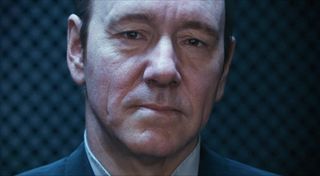Video Game Voice Actors Are On Strike, Get The Details

The Screen Actors Guild -- American Federation of Television and Radio Artists have initiated their strike, as they stated earlier in the week. They gave big publishers some time to work out some deals but things didn't quite come together as they had hoped.
SAG members plan on picketing Electronic Arts' offices starting next Monday. Game Informer posted up a reply by Scott J. Witlin from the Barnes & Thornburg outfit representing the game publishers -- including but not limited to Activision, Electronic Arts, and Take-Two Interactive -- where Witlin explains that the strike would only hurt SAG members and that the gaming industry would continue on as it always has...
We consider the Union's threatened labor action to call a strike precipitous, unnecessary and an action that will only harm their membership. SAG-AFTRA represents performers in less than 25% of the video games on the market. Any strike would not only deny SAG-AFTRA's membership work, but this would also give their competitors, who do not engage union talent, a leg up while any strike would be in place.
It's a very interesting comment that, in a way, seems to be calling for a more contrite approach from SAG when it comes to negotiations. It's true, though, that voice acting is only a small part of the thousands of games out there, and I'm not sure if Witlin is including indie games in that figure but the guild's performers being featured in only 25% of the games on the market isn't the sort of leverage I think SAG was looking for.
Witlin even goes on to say that what SAG is requesting -- royalties on the back-end for games that sell so many millions of copies, more safety measures in place on set, more stunt coordinators on set and more job security for guild members -- would end up costing more for companies producing games. In so many words, Witlin explains that paying a performer $100 an hour for limited work and then adding more expenses on top of that to "protect" that performer in addition to giving that performer back-end revenue pay would not ease the financial "burden" put on most development studios.
Someone claiming to be a developer hopped into the conversation in Game Informer's comment section, stating that while voice actors are contractors, they get paid significantly more than the developers actually working on the game.
A lot of gamers have also sided with publishers on the matter given that most gamers want production costs to come down so they don't have to pay $60 all the time for each new game, and I'm sure publishers want to bring the cost of production down so operating costs are easier to offset with x amount of sales. Developers would want to bring down production costs because it means the studio is less likely to shut down if they don't hit a ridiculous sales threshold.
Given that gaming thrived well before voice acting was a thing, and continued to thrive well before SAG got involved, it's hard to see the strike affecting too many studios who might just pick random actors to do voices instead of relying on guild members. This could, however, affect big budget games in development relying on SAG members, especially any game that hired a member for a project that went into production after February, 2015, which could likely include any new Call of Duty games, upcoming Battlefield titles, and anything that Gearbox, 2K Games, EA Sports or DICE is working on.
CINEMABLEND NEWSLETTER
Your Daily Blend of Entertainment News
Staff Writer at CinemaBlend.

Surprise, Quentin Tarantino’s Final Film Won’t Be The Movie Critic After All

Echo’s Alaqua Cox Opens Up About How Members Of The Choctaw Nation Have Reacted To Her MCU Show Since It Premiered

Leonardo DiCaprio Has Set His Sights On His Killers Of The Flower Moon Follow-Up, And He's Back With Martin Scorsese
Most Popular




